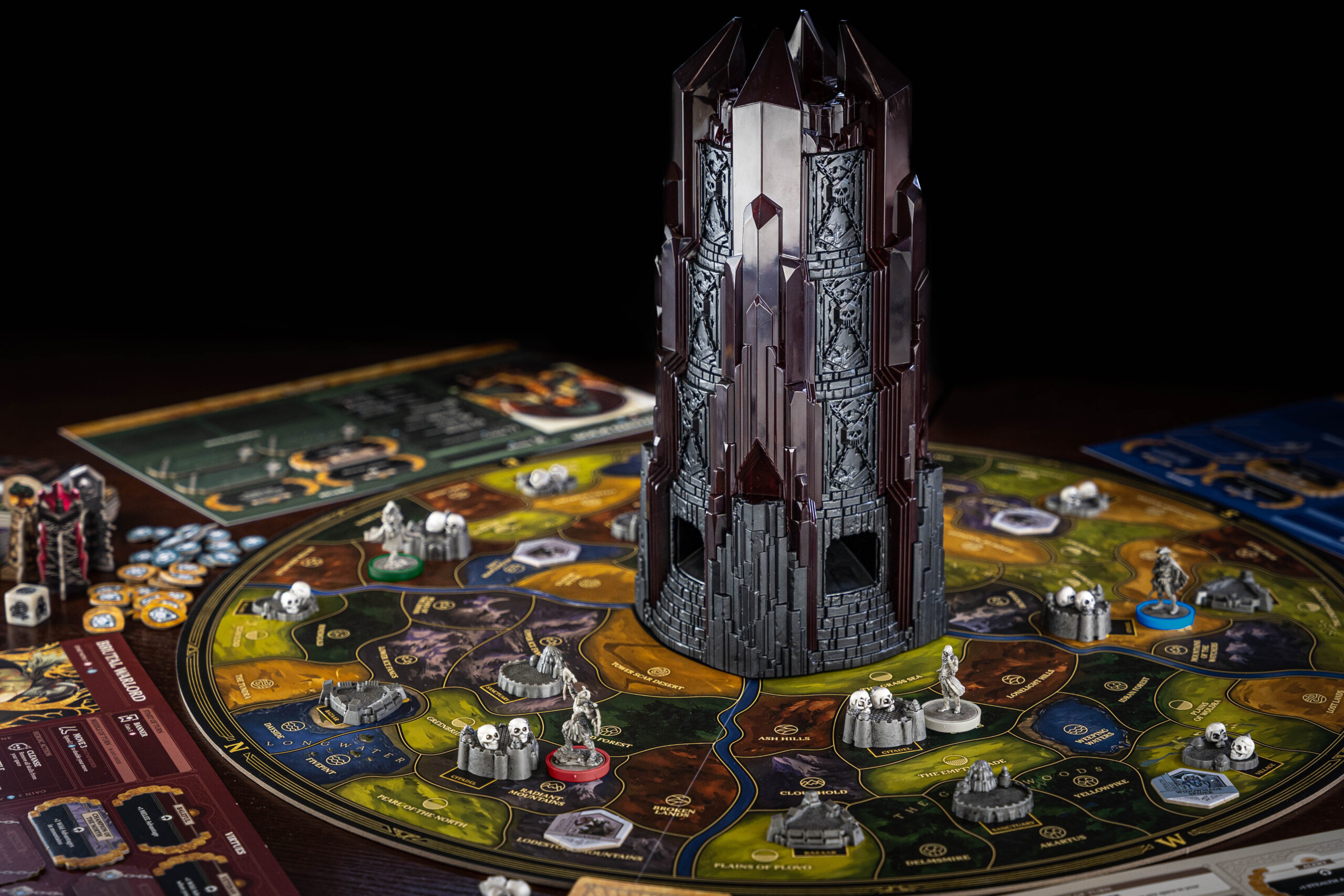 I never played the original Dark Tower #boardgame, but I picked up Return to Dark Tower a few years ago, and have managed to play it a few times, now. It’s surprisingly similar to Pandemic, which isn’t what I’d expected.
I never played the original Dark Tower #boardgame, but I picked up Return to Dark Tower a few years ago, and have managed to play it a few times, now. It’s surprisingly similar to Pandemic, which isn’t what I’d expected.
The game is mostly about managing skulls, which the tower shoots out at you, and the enemies on the board, while trying to accomplish time-limited tasks which cause the board to explode with badness if you fail.
The titular tower & app are a critical part of the experience, but mostly function as ways to make certain things less deterministic. You can’t know when quests will time out. Enemies can vary in power over the course of the game in ways that aren’t totally transparent. Events trigger at the end of turns, and you never quite know what will happen.
All of this *could* be managed with cards & stuff, but it’d make the game tedious and unwieldy. The nice thing is that the app & tower keep the players focused on the board & each other. The one downside is that the tower is so tall that it obscures your view of the opposite side of the map, and the player seated directly across from you – enough so that it feels somewhat difficult to coordinate with the other player.
But at the same time, since the side of the tower facing you spits out skulls, has glyphs that affect the cost of your actions, having it in front of you is essential. And it’s meant to be an imposing presence.
I think when I originally backed it, I thought the tower would do more stuff. In the end, it’s got three sections that rotate, some stuff that lights up, and some “seals” you can slide off, as well as lights and a speaker. It’s nice, but essential? I dunno.
It is, however, a great production. The art is great, the board is clear and readable, the minis and little buildings and stuff are great, and the game strikes a nice balance between depth and accessibility. I’m looking forward to trying out some of the expansions, since they change up how characters work a bit more and are a little bit more intense with powers and penalties and stuff in ways that seem like they’ll be more interesting.
Overall? It’s probably a 7 for me. 5’s a game that I’ll play if someone asks, but won’t volunteer on my own. 3 is something that’s pretty busted. 1 is offensively awful and I’d throw in the trash rather than sell or even donate. 10 is Eclipse or Gloomhaven or So Clover – games that do what they do perfectly. They don’t all have to be big or ambitious. Hell, Glory to Rome is a 10, and it’s a game that is basically about being totally broken. 😀
So RtDT being a 7 means, “It’s really good, but the base game misses my top-tier games.”
Some random games that do make the top tier:
- Beyond the Sun (9)
- Quacks of Quedlinburg (10)
- Cubitos (9)
- Scythe (9)
Image credit: Restoration Games



